Are you a student in need of a cozy and convenient place to call home? Navigating the world of student accommodation can be a daunting task, but you don't have to do it alone. In this article, we'll guide you through the essentials of crafting a compelling accommodation request letter to ensure you secure the perfect spot for your studies. Let's dive in and explore some helpful tips and templates that will make the writing process a breeze!
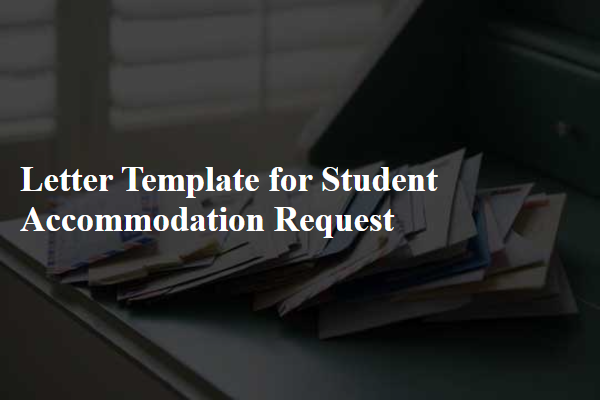
Personal Information
When requesting student accommodation, personal information plays a crucial role. This includes full name (e.g., John Doe), contact details (such as email address and phone number), which are essential for communication. Other relevant information includes student ID number (unique identifier provided by the institution), current address (necessary for verification purposes), and course details (name of the program, year of study). Providing these key details ensures that the accommodation office can efficiently process the request and allocate suitable housing, such as dormitories or shared apartments, to meet the needs of the student.
Purpose of the Accommodation Request
A student accommodation request is essential for individuals pursuing education at universities or colleges who require housing support. This request often arises when students face challenges in securing safe and suitable living arrangements in proximity to their academic institution, such as the University of California, Los Angeles (UCLA) or the University of Manchester. Factors influencing the necessity for accommodation can include financial constraints, health conditions, or disability needs. The request must detail specific requirements, such as wheelchair accessibility, proximity to public transport, or specific amenities like study spaces and quiet environments conducive to learning. Providing relevant documents like income statements or medical records can strengthen the request, illustrating the urgency and importance of the accommodation for the student's academic success and well-being.
Desired Accommodation Features
Students seeking accommodation often prioritize specific features that cater to their needs for comfort and convenience. Essential elements include a private bedroom, which provides personal space for study and rest, and a shared kitchen area, facilitating meal preparation and social interaction with fellow students. Proximity to campus amenities, such as libraries, lecture halls, and recreational facilities, enhances accessibility and encourages a balanced lifestyle. High-speed internet connectivity is crucial for academic research and online learning, especially in tech-focused courses. Additionally, laundry facilities within the building or nearby can significantly ease the burden of maintaining clean clothes. Security features, including well-lit common areas, secure entry systems, and on-site management, contribute to a safe living environment, ensuring peace of mind for residents. Lastly, communal social spaces or lounges foster a sense of community and provide opportunities for networking and forming friendships.
Financial Considerations
Financial considerations play a crucial role in securing student accommodation, especially in high-demand areas like London or New York. Rent prices in these cities can exceed PS1,500 per month for a one-bedroom apartment, presenting challenges for students relying on limited budgets. Utility costs, including electricity and water, generally add an additional PS100 to PS200 monthly, further straining finances. Additionally, many students face tuition fees averaging PS9,250 annually in the UK or upwards of $30,000 in the US, highlighting the importance of affordable housing options. Scholarship opportunities and part-time job earnings, averaging PS8 to PS12 per hour, can help mitigate these expenses, yet the demand for budget-friendly accommodations remains critical to ensure students can focus on their studies without financial stress.
Contact Information
Student accommodation requests often require clear communication regarding contact details. Essential information includes full name (e.g., John Smith), student ID number (e.g., 123456), email address (e.g., johnsmith@email.com), and phone number (e.g., +1 234 567 8901). In addition, providing the current address (e.g., 123 Main Street, City, Country) ensures that the accommodation office can validate the applicant's status. Clearly presenting this contact information fosters a prompt and efficient response from the housing administration, allowing for smoother processing of the accommodation request.
Letter Template For Student Accommodation Request Samples
Letter template of introduction for seeking roommates in student housing
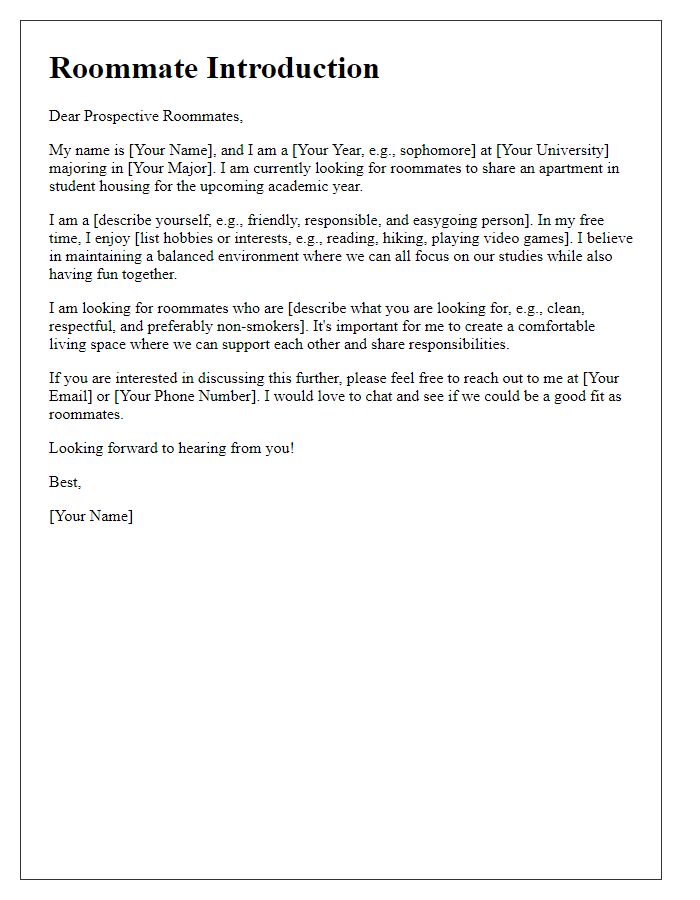

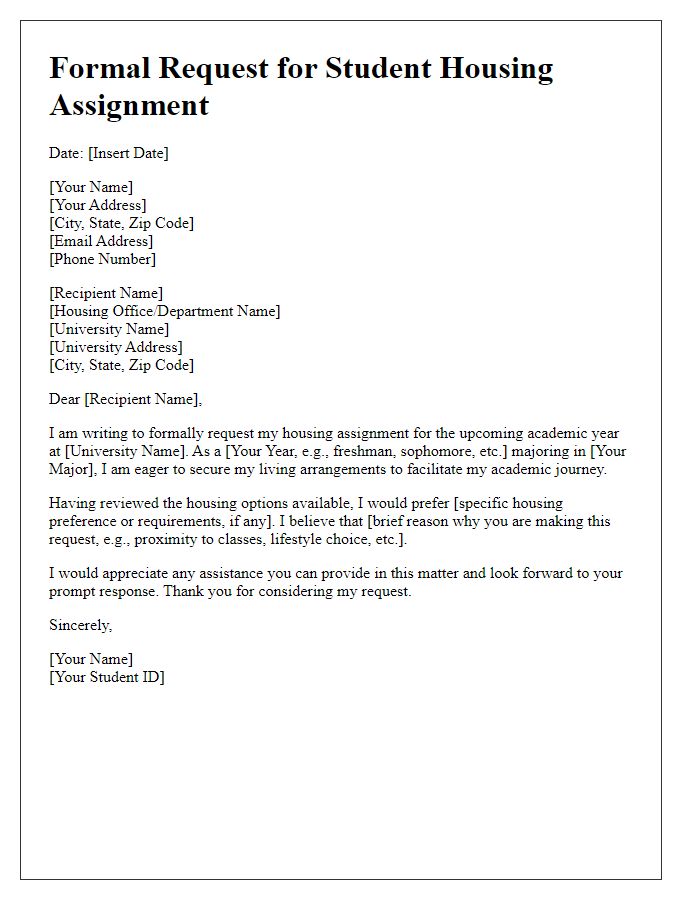
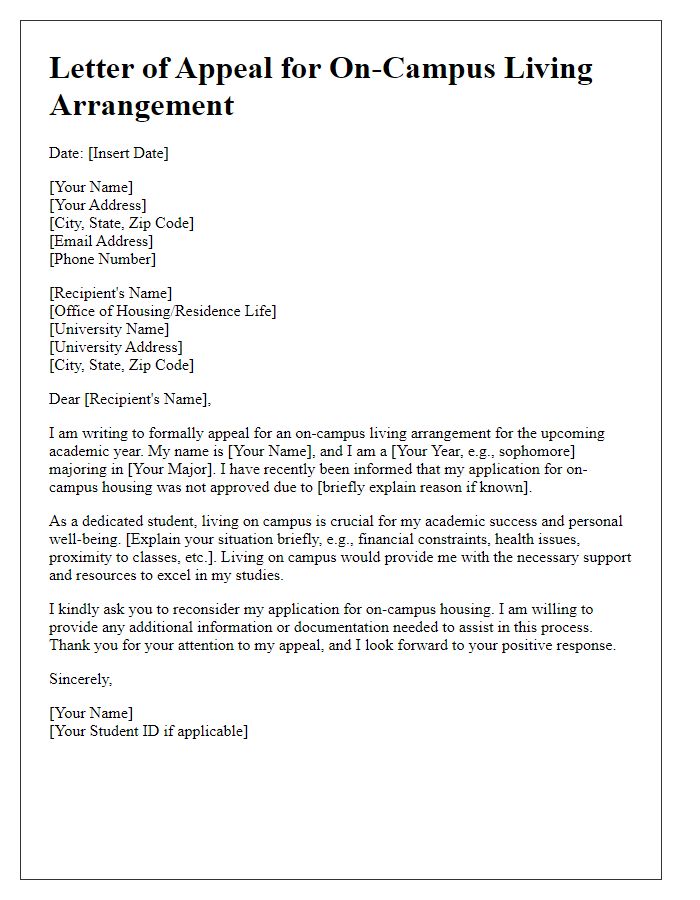
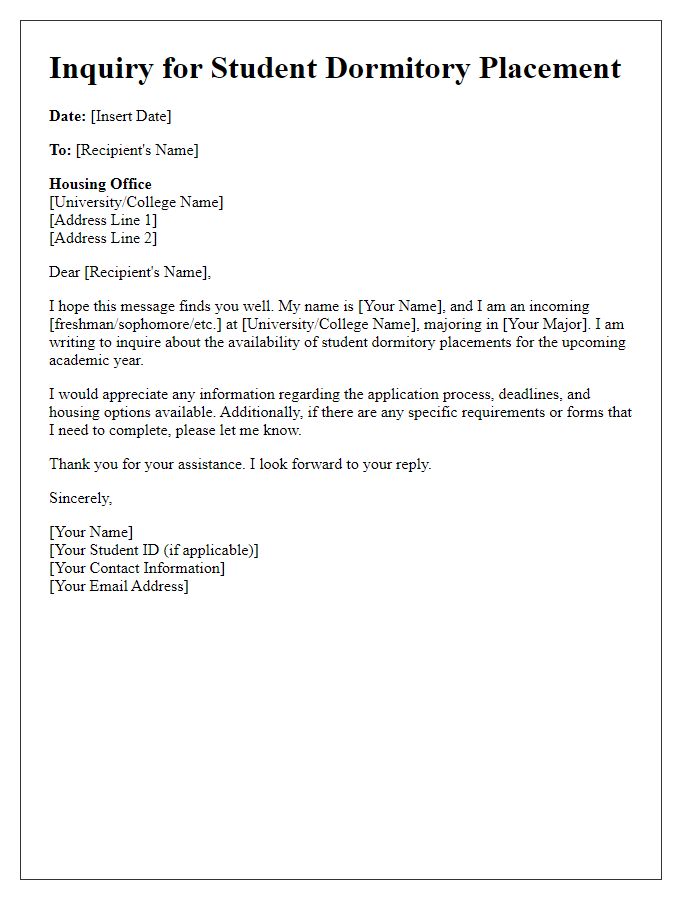
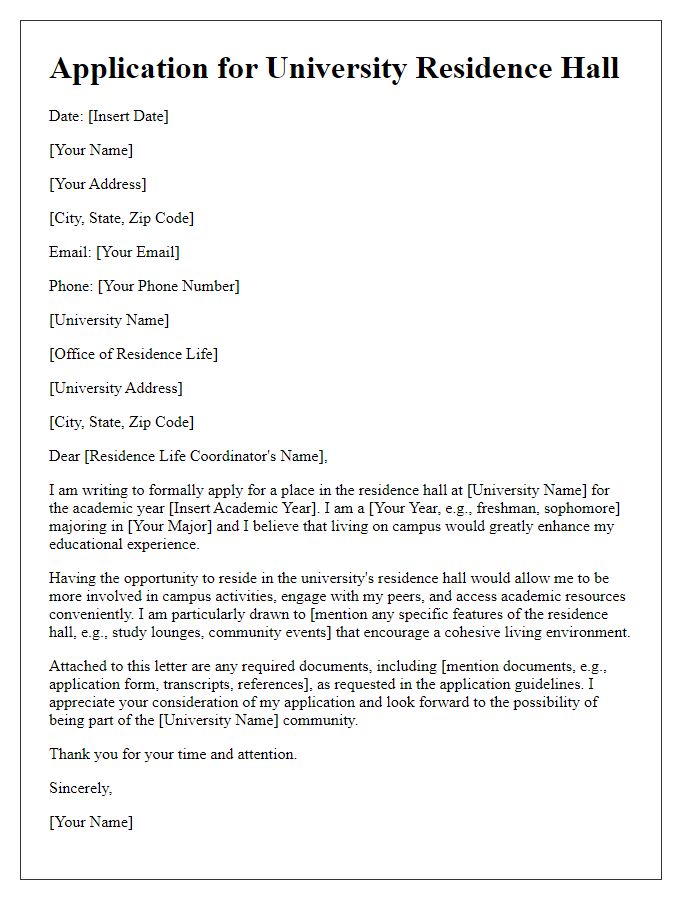
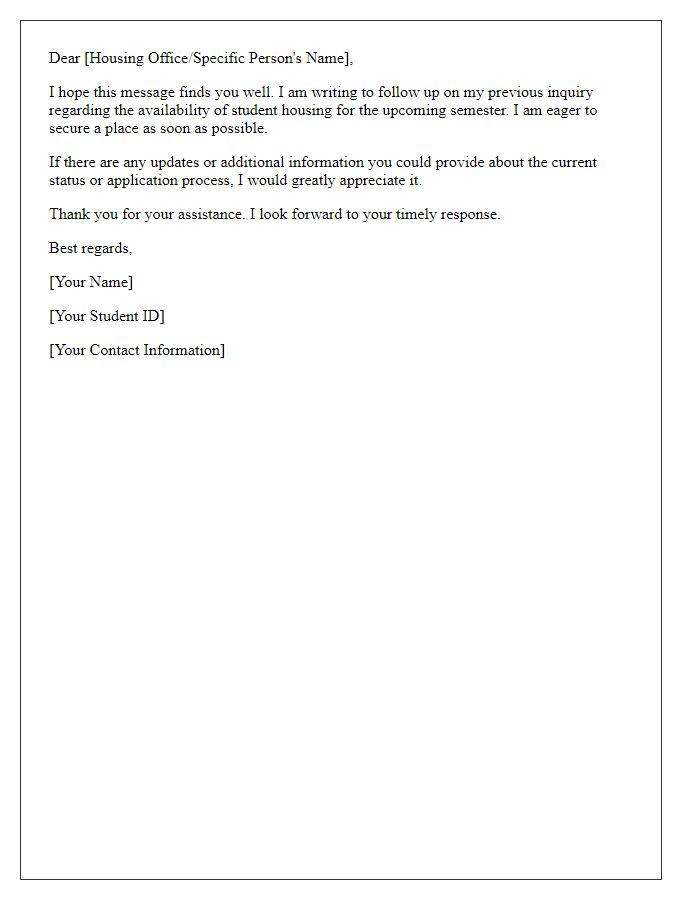
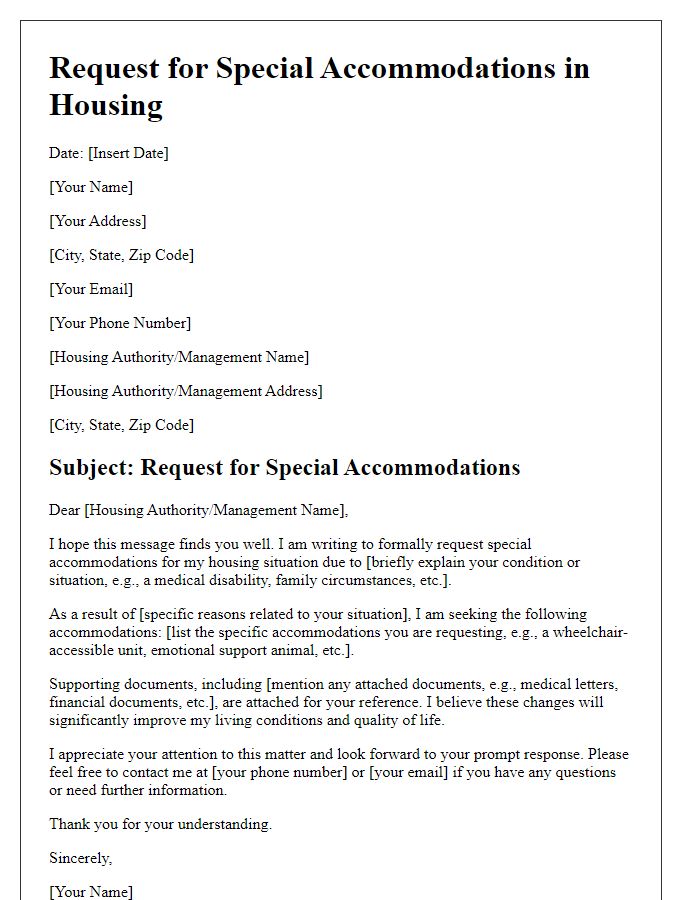
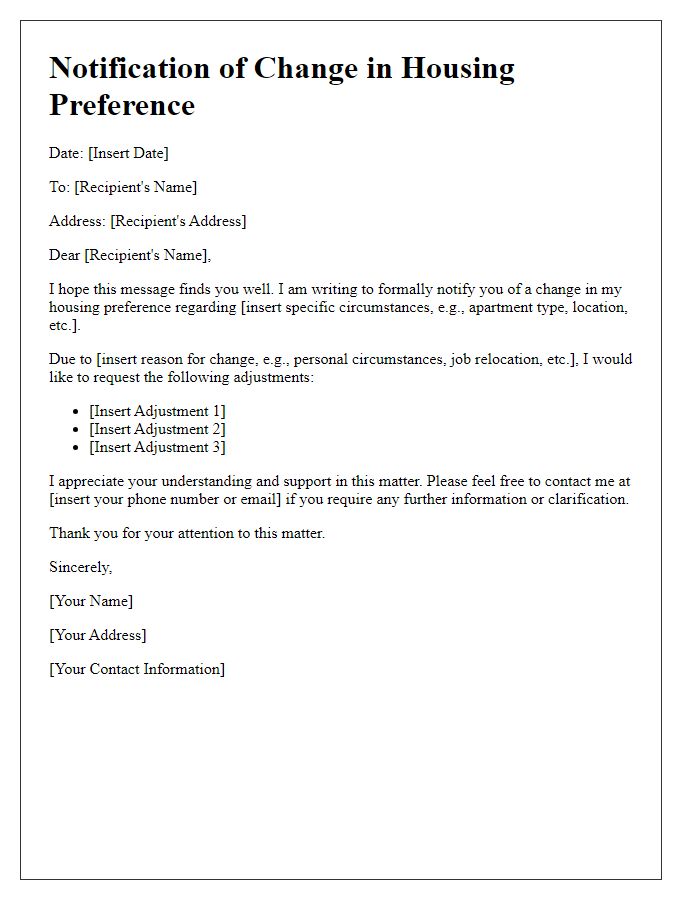
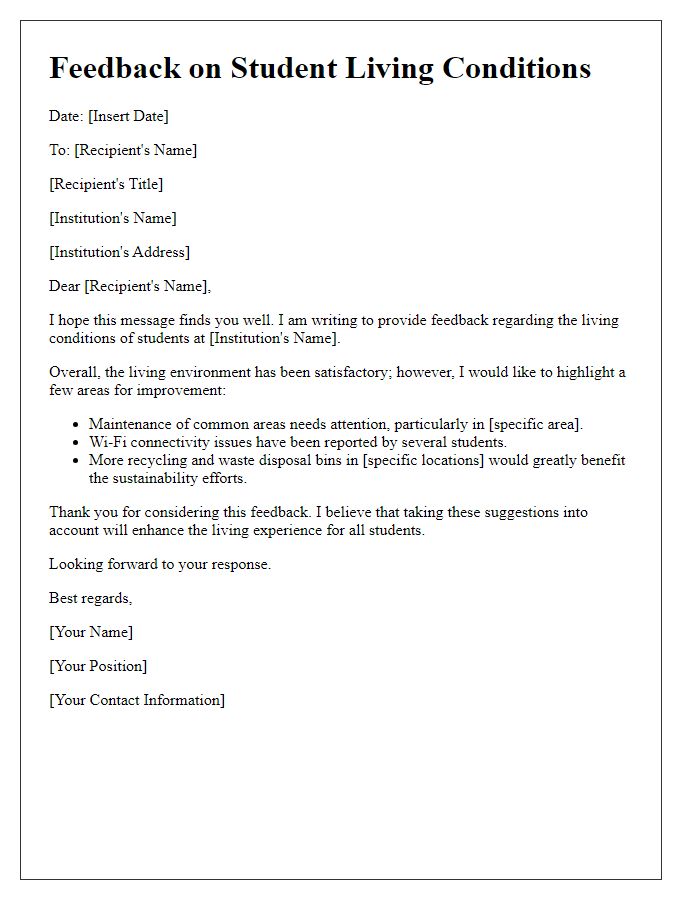
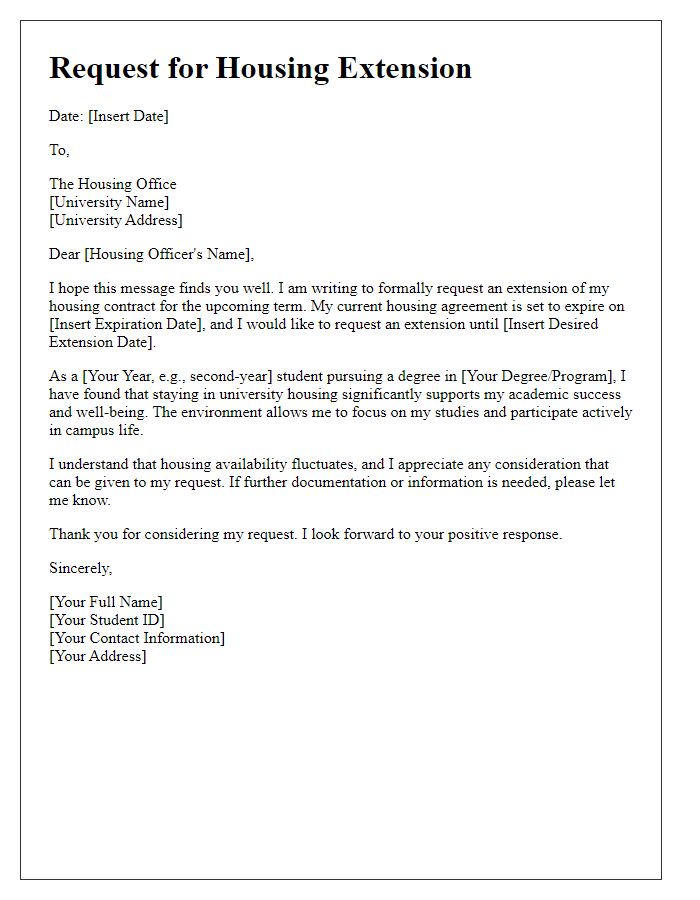


Comments